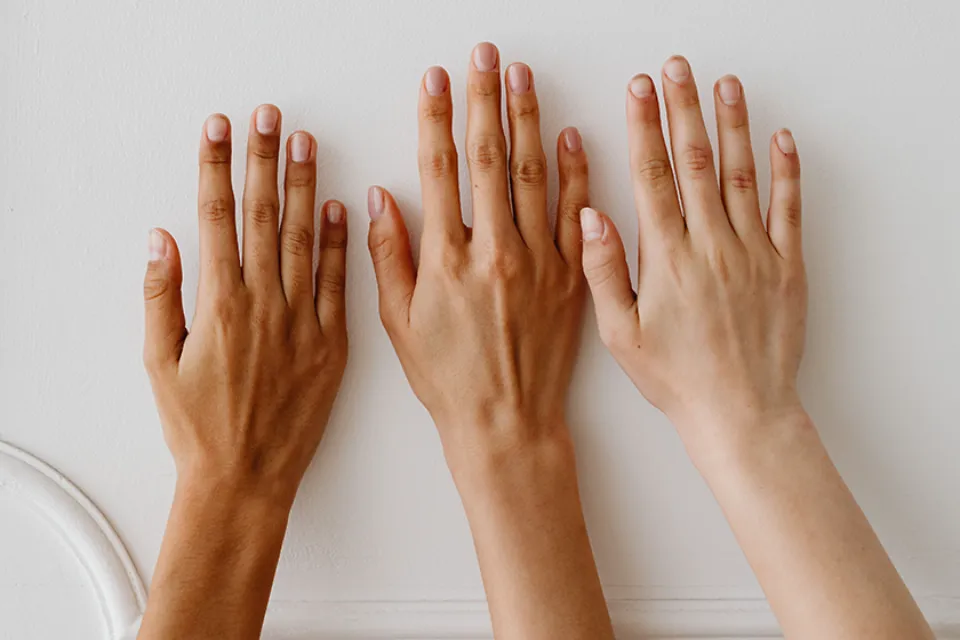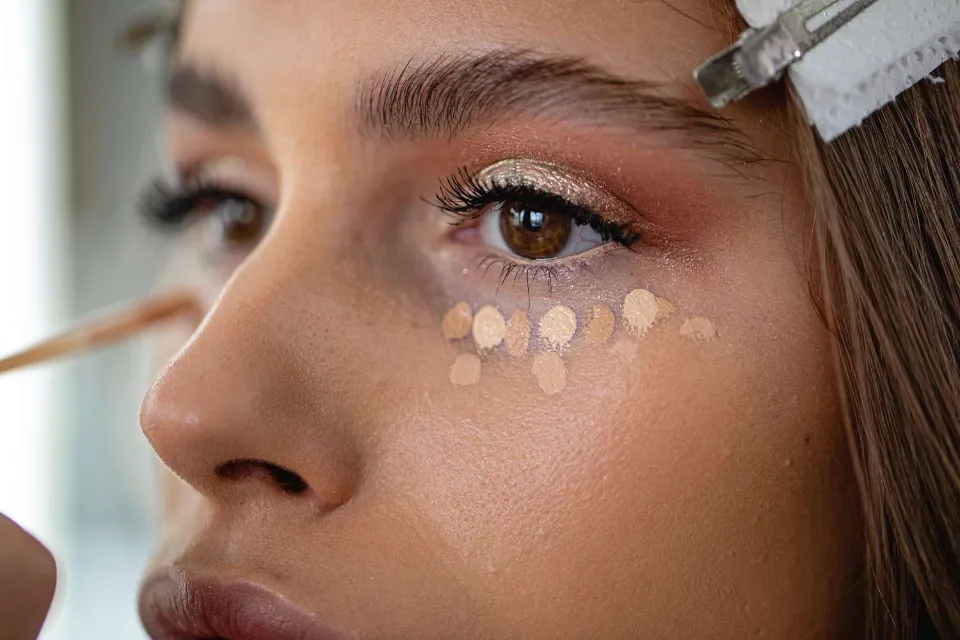Now is the time when many men and women are eager to try foundations. So should foundation be lighter or darker than your skin?
The experts have spoken, and the answer is, foundation should be one or two shades lighter than your skin tone.
It can be very difficult to select the right foundation color. It might leave you unsure of what shade of foundation to use. Let’s find out how to choose the right foundation and whether it should be lighter or darker than your skin.
Should Foundation Be Lighter Or Darker Than Your Skin?
As per beauty experts, your foundation must be one or two shades lighter than your skin tone.
This is because when you use bronzer or contour, the foundation will combine everything and give your face the ideal look.

Even many girls claim that when they use day serums and foundation in the day, the foundation oxidizes, and in that situation, only a foundation in a lighter shade will work well.
Read More: Is Foundation Bad for Your Skin?
How to Choose the Right Foundation?
The point of your base makeup is to help your skin look its best, and not to look like you have layers of product on. Here are some tips to help you perfect your makeup!
1. Understand Your Skin Type
This is perhaps the most crucial step to help you choose the perfect foundation formula. To choose a formula that will work best for you, you must be aware of the requirements and concerns of your skin.
Also Read:
2. Identify Your Undertone

Consider how golden (yellow toned) or rosy (pink toned) your skin looks when you examine it in the bare form. You have a warm undertone if you’re golden, and a cool undertone if you tend to look rosy.
If both factors are present, the undertone is neutral. Another way to figure this out is to look at the color of your veins – if they appear more deep purple or bluish, you will likely fall in the cool-toned spectrum.
You are warm-toned if your veins look greenish. Now how to pick the right foundation?
3. Match the Shade to Your Skin Tone
How can I choose the best foundation for my skin tone? The neck or jawline are the best areas to see if a foundation complements your skin tone.
The right shade will seamlessly blend into your skin color and won’t leave you looking ashy or ghastly. It is the incorrect shade if it causes a whitish cast to appear on your skin or if it makes you appear darker.
Don’t be afraid to mix two different colors for summer and winter. Additionally, your skin tone will change throughout the year and in various parts of your face, so this technique works.
4. Choose Your Finish
If you’re a newbie to using foundation, you may wonder what the heck a “finish” is? Even regular foundation users may seem to be confused about which one they want. A finish is simply the kind of sheen (or the lack of it) a foundation formula leaves on your skin.
There are a variety of finishes available, each of which looks stunning in its own right, including dewy, matte and semi-matte. Whichever look you prefer, though, will determine which one is best for you. In order to pull off any finish, it also depends on your skin type.
5. Test It Before You Buy It
Don’t just walk into the store and buy something without giving it a test run first. Do not color test on your hand is something we cannot emphasize enough. Your face tone is different from it. Instead, use a swatch to match the color precisely along your jawline.
To achieve the most natural-looking color, pick a few shades that seem to match your skin tone the closest, and test them out by dabbing some swatches ON YOUR JAWLINE, NOT ON YOUR HAND.
6. Consult a Makeup Professional
Trust me, it’s worth it to spend more on foundation if you go to a department store. You’ll find some solid assistance from professionals who’ll help you out. This is especially helpful for all you beginners.
Interested customers can also receive testers from some brands, which they can use to test out the product over a few days in mirrors and various lighting conditions as well as to see how it appears in photographs. Additionally, you should avoid purchasing foundation online because you might receive a shade that is completely different from what you were hoping for.
Conclusion: Should Foundation Be Lighter Or Darker Than Your Skin
One thing to naturally keep in mind is that the use of foundation is not to cover up your flaws.
To ensure that your skin is healthy and supple beneath all of that foundation and glitz, we emphasize the significance of general skincare.
Color correctors and concealer should be used to cover skin imperfections when applying makeup; foundation should not be the only step in your skincare or makeup routine.
Read More: How to Apply Powder Foundation?
FAQs
Should My Concealer Be Lighter Or Darker Than My Foundation?
The general rule of thumb is that you should always opt for a shade lighter than foundation when choosing your concealer color.
How to Tell If Foundation is Too Light?
If your foundation is too light, you will look ashy or as if you have a gray cast on your skin.
How to Choose Foundation Color for My Face?
The foundation’s color should be yellowish or peach to match warm undertones. But the color should be pinkish if you have cool undertones.




